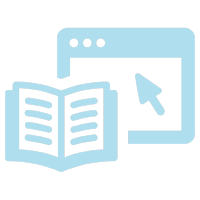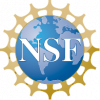RESEARCH & PRESENTATIONS


Sharing Our Work
IDEAS Maker Program staff from EDC, NYU, and SRI have conducted research on this program for seven years, and have presented on and written about the program extensively. Below are examples of some of this research.
Improving Executive Functions Using the Engineering Design Process: A Peer-Mediated Problem-Solving Approach for Autistic Adolescents
Understanding STEM Outcomes for Autistic Middle Schoolers in an Interest-Based, Afterschool Program: A Qualitative Study
Summary of Research Findings
This document summarizes the effects of the IDEAS program on a variety of dimensions related to student learning and behavior. It also includes a comprehensive list of our research papers and conference presentations.
Experiences of Students, Teachers, and Parents Participating in an Inclusive, School-Based Informal Engineering Education Program
Many youth on the autism spectrum possess interests and strengths for STEM-related postsecondary pathways. Yet there are few research-based programs to support those interests and competencies, which include complex problem solving and social communication. This qualitative study explored the experiences and perceived outcomes of students, teachers, and parents participating in an inclusive, strength-based, extracurricular engineering design program—the IDEAS Maker Club.
Promoting Science, Technology, and Engineering Self-Efficacy and Knowledge for All With an Autism Inclusion Maker Program
This paper describes the collaborative development of an inclusive maker program called Inventing, Designing, and Engineering for All Students (IDEAS), and the results of a study on the impact of that program on autistic students and their neurotypical peers. The IDEAS project brought together experts in maker education, autism inclusion, engineering, co-design, and research.
Making On and Off the Spectrum
The interest-driven nature of maker programming inspired the IDEAS project. People on the autism spectrum are as heterogeneous as any group of people, but one trait that many have in common is that they develop deep, focused interests in particular topics. In formal educational settings, these interests are sometimes pathologized and treated as something they need to overcome so that they can focus on their school work or learn how to socialize around mainstream topics. However, research has shown that interventions that draw on these focused interests actually help students with autism improve their social, academic, and executive function skills.
Improving Executive Functions Using the Engineering Design Process: A Peer-Mediated Problem-Solving Approach for Autistic Adolescents
Executive functions—specifically, problem-solving skills—are crucial for school success. Challenges faced by autistic adolescents in these functions are often unrecognized or viewed through a behavioral lens that requires correction or normalization. A lack of development of higher order problem-solving skills leads to increased instances of secondary mental health issues, creating further behavioral and social challenges. We propose using the Engineering Design Process (EDP)—a flexible, cyclical, top-down, self-sustaining approach that uses peer mediation—to teach group problem-solving skills.
Exploring Interpersonal and Environmental Factors of Autistic Adolescents’ Peer Engagement in Integrated Education
Peer engagement is essential but often challenging for adolescent autistic students in integrated education. Although peer engagement is bidirectional and context-dependent, research has largely focused on individual characteristics rather than the interpersonal and environmental factors affecting peer engagement. This mixed-methods study examined peer interactions among adolescents in an inclusive school club at a public middle school.
Finding Our Strengths: Recognizing Professional Bias and Interrogating Systems
No one builds their lives on remediated weaknesses. No one. Who does a deficits-based approach benefit? Those we serve, or the professional community? Do our current models of practice support flourishing? This lecture will draw on literature from positive psychology, disability justice, well-being, and research that centers the voice of self-advocates.
Peer preferences and characteristics of same-group and cross-group social interactions among autistic and non-autistic adolescents
Autistic students often experience challenges in peer interactions, especially for young adolescents who are navigating the increased social expectations in secondary education. Previous research on the peer interactions of autistic adolescents mainly compared the social behaviors of autistic and non-autistic students and overlooked the peers in the social context. However, recent research has shown that the social challenges faced by autistic may not be solely contributed by their social differences, but a mismatch in the social communication styles between autistic and non-autistic people. As such, this study aimed to investigate the student-and-peer match in real-world peer interactions between six autistic and six non-autistic adolescents in an inclusive school club.
Impacts Of Inclusive Maker Programming on Students' Engineering Knowledge and Interest
Maker programs, which involve hands-on production of physical or digital artifacts, are an engaging way to have youth pursue their personal interests as they learn the engineering design process (EDP) (Martin and Dixon, 2016; Bevan et al., 2018). Making can support development of a range of academic, social-emotional, and interpersonal abilities (Halverson and Peppler, 2018). However, young autistic adults often have difficulty joining or remaining in the STEM workforce (Shattuck et al 2012).
Gardner, S., Woods, A., Riccio, A., & Martin, W. (2023). Impacts of inclusive maker programming on students’ engineering knowledge and interest. [Poster presentation] Annual meeting of the American Society for Engineering Education (ASEE), Baltimore, MD.
Martin, W. & Tumolo, S. (2023). From accommodation to inclusion: Co-creating universally designed programs. [Workshop presentation] Annual meeting of the Alliance of American Museums (AAM), Denver, CO.
Akrofi, J.N.S., Onwumere, D. Murthi, K. Patten. K., Riccio, A. & Martin, W. (2023). Becoming and belonging: Experiences of middle school autistic students participating in an inclusive, interest-based Maker club. [Paper presentation] American Occupational Therapy Association’s INSPIRE Conference, Kansas City, MO.
Akrofi, J.N.S., Onwumere, D. Murthi, K. Martin, W., Riccio, A. & Patten. K.. (2023). Mental health and belonging: Participation in inclusive, interest-based, afterschool maker clubs for middle school autistic students. [Poster presentation] International Society for Autism Research (INSAR) Annual Meeting, Stockholm, Sweden.
Riccio, A., Gardner, S., Woods, A., Murthi, K., Onwumere, D., & Martin, W. (2023). Understanding the impact of an inclusive maker program: Engineering design process thinking and teacher reflections. [Poster presentation] International Society for Autism Research (INSAR) Annual Meeting, Stockholm, Sweden.
Akrofi, N.S., Onwumere, D., Murthi, K., & Patten, K. (2023, October 19). Becoming and belonging: The impact of peer mentorship among autistic young people [Poster presentation]. Society for the Study of Occupation (SSO): USA 2023 Annual Conference, St. Louis, MO.
Onwumere, D., Akrofi, N.S., Murthi, K., & Patten, K. (2023, June 24). Facilitation of Self-Determination and Self-Advocacy in an Autistic to Autistic Peer Mentorship Program: A Pilot Study [Oral presentation]. 2023 OT Summit of Scholars, Columbus, OH.
Tumolo, S., Riccio, A. & Martin, W. (2023). The IDEAS Maker Program: Open-access curriculum and training to facilitate your school’s maker club. [Poster presentation] Annual meeting of the Council for Exceptional Children. Louisville, KY.
Martin, W. & Tumolo, S. (2023). STEM for All Multiplex panel: Embracing Neurodiversity with Teon Edwards, Jodi Asbell-Clark and Ibrahim Dahlstrom-Hakki from TERC and Lynn Cominsky from Sonoma State University.
Gardner, S., Woods, A., Jackson, L., Riccio, A., & Martin, W. (2022). Impacts of inclusive maker programming on students’ engineering knowledge and interest. [Paper presentation] International Conference on Education, Research and Innovation, Seville, Spain.
Martin, W., Tumolo, S., Brothman, A., Riccio, A. & Murthi, K. (2022). From accommodations to inclusion: Co-creating maker programs with and for neurodiverse youth. Pre-conference workshop presented at the annual meeting of the Association of Science and Technology Centers (ASTC), Pittsburgh, PA.
Murthi, K., Chen, Y.L., Patten, K., Martin, W., Vidiksis, R., & Ricco, A. (2022). “We’re always testing our prototypes”: Using Maker Curriculum to Build Problem-Solving Skills and STEM Interests in an Inclusive Club Context. CEC 2022, Miami, FL [Poster].
Murthi, K., Chen, Y.L., Patten, K., Martin, W., Vidiksis, R., & Ricco, A. (2022). “What do we do after we fail? We try again”: Autistic students’ experiences of project failures in an interest-based afterschool maker program. INSAR 2022. Austin, TX [Poster].
Riccio, A., Martin, W., Chen, Y-L., Murthi, K. & Patten, K. (2022). Building Engineering Interest and Resilience through Maker Programming in Autism-Inclusion Schools. [Poster presentation] American Society for Engineering Education 2022. Minneapolis, MN.
Chen, Y. L., & Patten, K. (2021). Moving beyond individual factors: Environmental support and barriers to the social participation of autistic adolescents in inclusive education [Conference session]. International Society for Autism Research Annual Meeting (INSAR). Online.
Chen, Y. L., & Patten, K. (2021). Peer match, rather than autistic diagnosis, predicts social network density and strength in real-world peer interaction among autistic and non-autistic adolescents [Conference session]. International Society for Autism Research Annual Meeting (INSAR). Online.
Murthi, K., Chen, Y.L., Patten, K., Martin, W., Vidiksis, R., & Ricco, A. (2021). Teacher Experiences of Implementing IDEAS Maker Program, a Research-Based Inclusive STEM Curriculum in Public Middle Schools. [Poster presentation] International Society for Autism Research Annual Meeting (INSAR). Online.
Riccio, A., Martin, W., Gutierrez, J., Yu, J., Wei, X., & Patten, K. (2021). The IDEAS Maker Program: Development, results and future directions within an inclusion public education setting [Paper presentation]. American Educational Research Association (AERA) annual conference. Online.
Chen, Y. L., & Patten, K. (2021). Student-peer neurotype match, rather than autistic neurotype, predicts peer connections in Inclusive education [Poster presentation]. Occupational Therapy Summit of Scholars. Online.
Martin, W., Riccio, A., Kirk, D., & Sharp, R. (2020). Co-designing inclusive student-led maker clubs with high school students [Conference session]. MakerEd annual conference. Online.
Martin, W, Vidiksis, R., Patten Koenig, K., & Chen, Y. (2019). Reflections on redesigning a museum-based maker program for clubs in autism inclusion middle schools. A rapid community report on the International Society for the Learning Sciences archive.
Martin, W., Vidiksis, R., Riccio, A., Chen, Y., Moeller, B, Patten Koenig, K. (2019). Inventing, designing, and engineering on the autism spectrum: An inclusive maker club for middle school students on and off the spectrum to learn the engineering design process. Workshop presented at the annual meeting of the Council for Exceptional Children. Indianapolis, IN.
Chen, Y., Patten Koenig, K., Martin, W., Vidiksis, R. (2019). Effects of inclusive interest-based maker club on social interaction in middle school students with autism. OT Summit of Scholars. Charleston, SC.
Chen, Y., Patten Koenig, K., Martin, W., Vidiksis, R. (2018). Supporting social participation in children with autism spectrum disorder: Observations in the natural context of an interest-based school club. World Autism Organisation International Congress 2018. Houston, TX.
Phillips, A (2017). The value of interest-driven making. Making a Difference pre-conference of the Association of Science and Technology Centers (ASTC) annual conference, San Jose, CA.
Camnasio, S. (2018). Developing user-centered facilitator supports for a middle-school engineering program. Science Education for Students with Disabilities pre-conference at the National Science Teachers Association (NSTA) meeting, Atlanta, GA.
Vidiksis, R., Martin, W. Chen, Y-L. & Patten. K (2018). IDEAS: Inventing, designing and engineering on the autism spectrum. International Society for Autism Research (INSAR), Rotterdam, the Netherlands.








